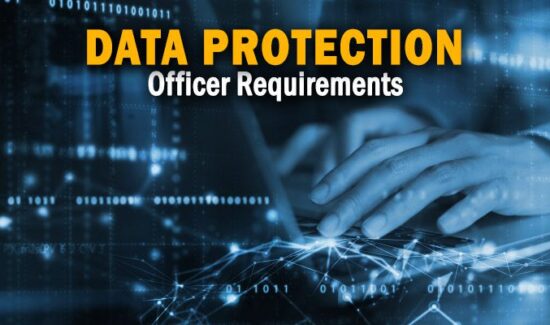5 Common Data Privacy Officer Interview Questions & Answers


Solutions Review editors highlight the most common data privacy officer interview questions and answers for jumpstarting your career in the field.
A data privacy officer (DPO) is responsible for ensuring that an organization’s data handling practices comply with relevant data privacy regulations, such as GDPR and CCPA. They serve as a point of contact for individuals whose personal data is being processed and for data protection authorities. Their responsibilities include developing and implementing data protection policies and procedures, providing employee training on data privacy best practices, and conducting data protection impact assessments.
They also work to ensure that data subject requests are handled appropriately, such as requests to access or delete personal data. DPOs are responsible for monitoring changes to data privacy regulations and ensuring that the organization’s practices remain in compliance. They also play a key role in managing data breach response and management, which involves quickly detecting and responding to data breaches, notifying affected individuals, and taking steps to prevent future breaches. Overall, data privacy officers are critical to ensuring that an organization’s data handling practices comply with relevant data privacy regulations and protecting individuals’ personal data.
Data Privacy Officer Interview Questions
- What is your understanding of data privacy regulations, such as GDPR and CCPA?
Possible answer: Data privacy regulations are legal frameworks designed to protect individuals’ personal data from misuse and abuse. GDPR is the General Data Protection Regulation, which applies to organizations that collect and process personal data of individuals in the European Union. CCPA is the California Consumer Privacy Act, which applies to organizations that collect and process personal data of California residents. As a DPO, my role is to ensure that our organization’s data handling practices comply with these regulations, which includes implementing data protection policies and procedures, providing employee training, and conducting data protection impact assessments.
- What is your experience with data breach response and management?
Possible answer: As a DPO, I have experience in developing and implementing data breach response plans, which involve quickly detecting and responding to data breaches. This includes taking steps to mitigate the impact of the breach, such as identifying affected individuals and notifying them, and implementing measures to prevent future breaches. I have also worked with IT and security teams to conduct forensic investigations to determine the cause and extent of data breaches.
- How do you ensure that an organization’s data handling practices are compliant with data privacy regulations?
Possible answer: I ensure that our organization’s data handling practices comply with data privacy regulations by conducting regular data protection impact assessments, reviewing and updating data protection policies and procedures, and providing employee training on data privacy best practices. I also work closely with IT and security teams to ensure that data handling processes are designed with data privacy in mind, and that they meet relevant data protection standards. Additionally, I monitor changes to data privacy regulations and ensure that our organization’s practices are up-to-date and in compliance with new regulations.
- How do you manage data subject requests?
Possible answer: Managing data subject requests involves responding to requests from individuals who want to know what personal data we hold about them, or who want their data to be corrected or deleted. As a DPO, I work closely with our legal and IT teams to ensure that we have processes in place for handling these requests in a timely and efficient manner. This includes verifying the identity of the requester, retrieving and reviewing the relevant data, and responding to the request within the time frame required by the applicable data privacy regulations.
- How do you balance the needs of data privacy with the needs of the business?
Possible answer: Balancing the needs of data privacy with the needs of the business involves developing policies and procedures that protect personal data while also enabling the business to operate efficiently. As a DPO, I work closely with business stakeholders to understand their data needs and identify ways to meet those needs while complying with data privacy regulations. I also conduct risk assessments to identify potential data privacy risks and develop plans to mitigate those risks. Additionally, I collaborate with other departments to ensure that data privacy is integrated into the design and development of new systems and processes, to avoid the need for expensive retrofits down the line.
























